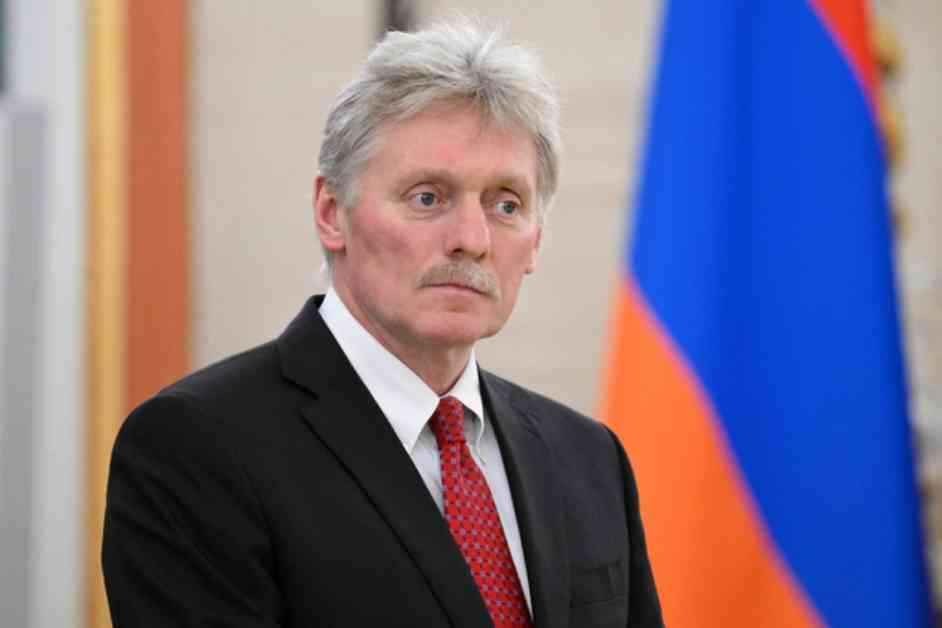The Kremlin Criticizes Zelensky’s Nuclear Deterrence as ‘Madness’
The recent suggestion by Ukrainian President Volodymyr Zelensky that nuclear weapons could be the key to ensuring Ukraine’s security against potential Russian aggression has sparked controversy. The Kremlin wasted no time in slamming Zelensky’s idea, with Kremlin spokesperson Dmitry Peskov calling it “bordering on madness.” In a statement to the Russian Radio Mayak Telegram channel, Peskov emphasized the existing nuclear non-proliferation regime and expressed hope for a more rational approach to such sensitive matters among European politicians.
Zelensky’s remarks came during an interview with British journalist Piers Morgan, where he hinted at the possibility of Ukraine rearming with nuclear weapons if the country’s bid to join the NATO alliance falls through. This decision to relinquish its nuclear arsenal was made in 1994 under the Budapest Memorandum, in exchange for security assurances from various countries, including Russia. However, Russia’s subsequent actions, including the annexation of Crimea in 2014 and ongoing military interventions in Ukraine, have raised doubts about the efficacy of such agreements.
Ukraine’s Nuclear History and Disarmament Process
A significant historical context surrounds Ukraine’s nuclear capabilities, with the country once boasting a substantial arsenal of strategic nuclear weapons following the dissolution of the Soviet Union. Estimates suggest that Ukraine possessed around 1,900 such weapons in January 1994, making it the world’s third-largest nuclear power at the time. However, following negotiations and international pressure, Ukraine began the process of dismantling and transferring its nuclear weapons to Russia in the mid-1990s.
According to a 1999 publication on nuclear disarmament, the final removal of all strategic nuclear weapons from Ukraine was completed by June 1996, marking a significant step towards global non-proliferation efforts. Despite these actions, recent speculations have emerged regarding the potential reinstatement of Ukraine’s nuclear capabilities as a means of deterring further Russian aggression. Reports in 2024 suggested that the Biden administration was considering supporting such a move, in light of escalating tensions in the region and concerns about Western support for Ukraine.
The Debate Over Ukraine’s Nuclear Future
The idea of returning nuclear weapons to Ukraine as a deterrent against Russian incursions has divided opinions among policymakers and analysts. While some argue that reinstating Ukraine’s nuclear capabilities could provide an immediate and formidable deterrent, others highlight the complex implications and risks associated with such a decision. The lack of possession of Ukraine’s former nuclear arsenal by the United States further complicates any potential plans for rearmament.
The delicate balance between national security, international agreements, and regional stability underscores the complexities of nuclear deterrence in the modern geopolitical landscape. As the debate rages on, it remains crucial for policymakers to weigh the potential benefits and risks of any actions that could impact the delicate balance of power in the region. The future of Ukraine’s nuclear aspirations hangs in the balance, with far-reaching implications for global security and stability.
The discussion surrounding Ukraine’s nuclear deterrence strategy highlights the intricate interplay between historical agreements, current geopolitical tensions, and future security considerations. As the world watches closely, the decisions made in the coming months could shape the trajectory of international relations in Eastern Europe and beyond. The need for cautious and informed decision-making is more critical than ever in navigating the complex dynamics of nuclear proliferation and deterrence.

















